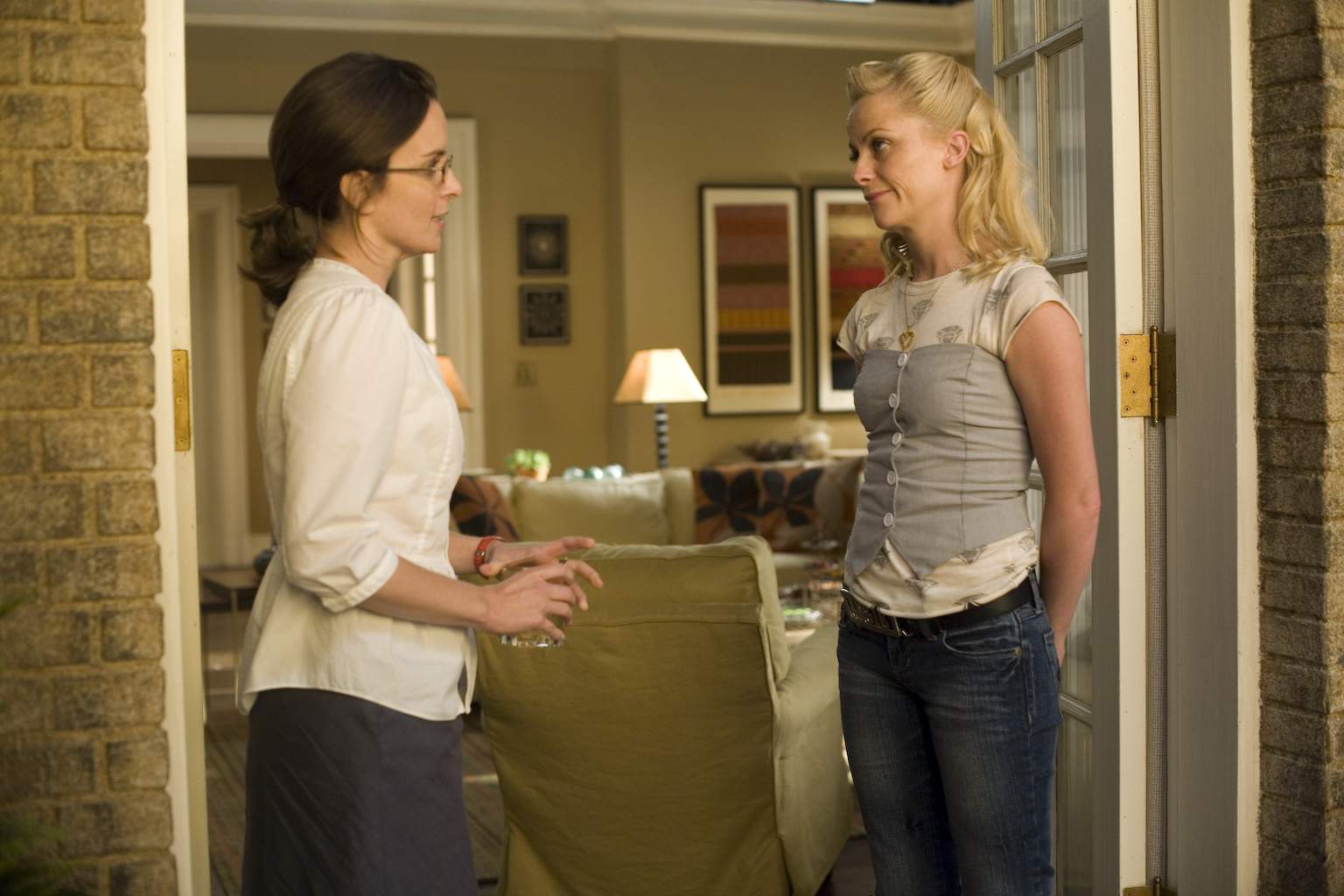The title of this post is, in fact, not about excrement. In Bossypants, Tina Fey laments that she has "brown hair" while other women got to have "blonde hair", demanding that people call it what it is: yellow.
Anyhow, Bossypants gave me a new appreciation for Saturday Night Live which, after nearly 40 years, tends to have a 50/50 between good and terrible on a good day. One quote in particular stood out:
The ... thing I remember about the Sylvester Stallone show was that they did a Rocky-themed monologue and they needed someone to play Rocky's wife, Adrian. Cheri really wanted the part- she was little, she was from Philly, she could do a good impression of Talia Shire- but instead somebody thought it would be funnier to put Chris Kattan in a dress. I remember thinking that was kind of bullshit.
...
...I tell this specific tale of Cheri being passed over for Kattan-in-drag because it illustrates how things were the first week I was there. By the time I left nine years later, that would have never happened. Nobody would have thought for a second that a dude in drag would be funnier than Amy, Maya, or Kristen. the women in the cast took over the show in that decade, and I had the pleasure of being there to witness it.
Which highlighted to me a consistent trend in nearly every sketch comedy show: Monty Python, Kids in the Hall, Mr. Show, Whitest Kids U Know...find the women! Nope, that's a dude in drag, sorry. In the last 30 years, I thought of two sketch comedy shows with major female cast members: MadTV, which aimed for being a second rate, crude SNL and still felt short, and Upright Citizens Brigade which was brilliant and, low and behold, had no one else but
These two have been oft compared and for good reason, considering both the extremely similar arc in their careers (Second City->sketch comedy TV->SNL Weekend Update anchor->-Baby Mama->NBC Thursday night sitcom star) and their prominence as the go-to women for feminist deconstruction of comedy these days.
A lot of debate as been had over Tina Fey and Liz Lemon on 30 Rock and if Liz is in fact a good role model or a problematic stereotype. She's terrified of sex, has an unhealthy relationship with food, lacks self-confidence, and tends to harp on things. On the other hand, she is the head writer of a (sort of) major sketch comedy show, she's actually pretty darn successful, and she's very smart if...odd. Often, the show also uses Liz being unattractive as a crutch for humor even though Tina Fey so clearly isn't, a comic technique Phyllis Diller pioneered to break into comedy so her male compatriots would feel less threatened. But, again, on the other hand, you occasionally get the brilliant episodes like Stride of Pride where Liz has to prove that women are, in fact, funny and when the episode gets to this point, you don't get to see her proof, you just get a little montage over a song admonishing the TV audience for even considering that it needs to be proven.
Amy Poehler as Leslie Knope on Parks and Recreation, meanwhile, is extraordinarily successful and good at what she does. She's a one-woman cheering squad for women. She has a weird relationship with food but it's never presented as a flaw and, in fact, seems to be more a reflection of her position as the Best of Pawnee: Pawnee is a town that loves their sugar as much as Leslie does. Leslie is funny, but rarely the joke. And when she is sort of the joke...it's awesome, like April trying to pretend to be Leslie by beginning a town meeting with "As Eleanor Roosevelt once said to Betty Ford...Hillary Clinton is great!"
These two women have shared the same NBC Thursday night for 4 years now and, with 30 Rock officially over and Parks and Rec likely soon to go too, I sort of worry about the future of the channel. Up All Night, which wasn't nearly as smart or funny as the other two, was still also a show created by a woman about powerful women, and has now been retooled to death(slowly removing the women) and is likely gone. Community, which had an unexpectedly beloved feminist in the perennially upbeat but maligned Britta, is certainly on its last legs, with its creator having been axed before this season. For a short time, that block was the most feminist 2 hours of TV, and it happened so organically it didn't even seem to register to anyone that it happened. Unfortunately, it's also the era of the lowest ratings for NBC Thursday nights since before the Cosby Show. So...screw you America.
Here's Tina and Amy being awesome and hosting the Golden Globes.




